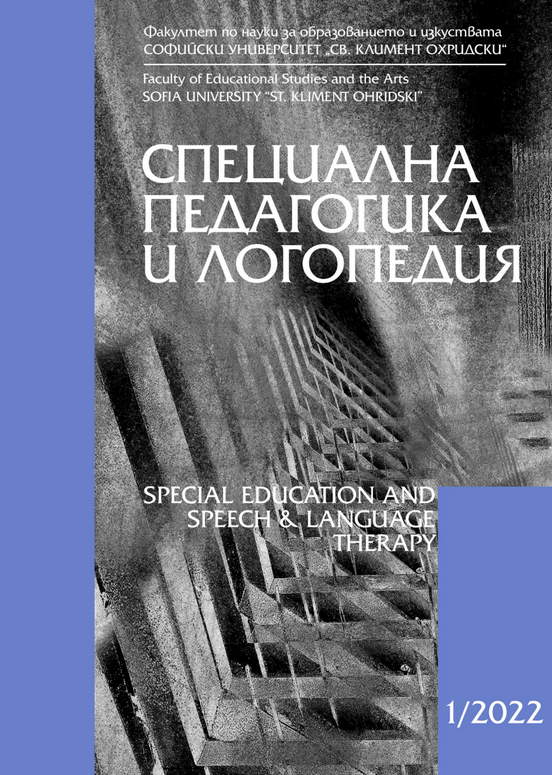Development of Bulgarian sign language dictionary to support deaf people in crisis situations
Keywords:
online sign language dictionary, Bulgarian sign language, crisis communication, WordNet, Covid-19Abstract
The purpose of the article is to present a methodology for developing a Bulgarian sign dictionary for communication during crisis situations. Linguistic data are extracted according to basic lexicographical principles for creation of sign dictionaries relying on observations on real-life usage of the signs. In specially organized seminars with deaf moderators, carried out in the form of free discussion on the Zoom communication platform, deaf people and users of the Bulgarian sign language are provided with the opportunity to communicate without interference from the Bulgarian verbal language. The extracted data are processed manually on the specialized program ELAN to describe all usage variants of the signs on different topics important for the crisis communication. In its final version, the dictionary contains 600 units and it clearly demonstrates that there is no complete correspondence between the vocabulary units of the Bulgarian verbal and the Bulgarian sign language. There are many key concepts related to crisis communication that have no corresponding signs.
References:
Lozanova, Sl., Iv. Stoyanova. (2016). Interkulturni i sotsiolingvistichni osobenosti na zhestoviya ezik v obshtnostta na khorata s uvreden slukh v Bŭlgariya. Sbornik Paisievi cheteniya: Ezik, literatura i interkulturna komunikatsiya, 2016:290-302.
Lozanova, Sl. (2015). Semiotichni aspekti na verbalno-zhestoviya bilingvizŭm pri detsa s ureden slukh. Disertatsiya za prisŭzhdane na nauchnata stepen „doktor”, Nov bŭlgarski universitet.
Lozanova, Sl. (2018). Bŭlgarskiyat zhestov ezik kato predmet na lingvosemiotichno izsledvane – metodologiya i izvodi. sb. Nauchni i prakticheski aspekti na priemashtoto obrazovanie, UI Sv. Kliment Okhridski, 260-269.
Tisheva Ĭ., V. Khristova, V. Zhobov, G. Dacheva, Kr. Aleksova, P. Angelkova, TS. Popzvateva, YU. Stoyanova. (2017). Rechnik na bŭlgarskiya zhestov ezik. Izd. Izkustvo i obrazovanie. MON., Sofiya. Accessed: https://mon.bg/upload/21132/Rechnik_bg_zhestov_ezik.pdf.
Bond, Fr., Foster, R. (2013). Linking and extending an open multilingual Wordnet. In Proceedings of the 51st Annual Meeting of the Association for Computational Linguistics (Volume 1: Long Papers), pages 1352–1362, Sofia, Bulgaria. Association for Computational Linguistics.
Crasborn, O., Sloetjes, H. (2008). Enhanced ELAN functionality for sign language corpora. In Proceedings of LREC 2008, Sixth International Conference on Language Resources and Evaluation.
Fellbaum, C. (ed.). (1999). WordNet: an Electronic Lexical Database. MIT Press, Cambridge, MA.
Fenlon, J., Schembri, A., Johnson, T., Cormier, K. (2015). Documentary and Corpus Approaches to Sign Language Research. In The Blackwell Guide to Research Methods in Sign Language Studies, ed. by E. Orfanidou, B. Woll & G. Morgan, 156–172. Oxford: Blackwell.
Koeva, Sv. (2010). Bulgarian Wordnet – current state, applications and prospects. Bulgarian-American Dialogues, 120–132.
Lucas, C., Clayton, V. (1989). Language contact in the American Deaf community: The sociolinguistics of the Deaf community. San Diego, CA: Academic Press.


